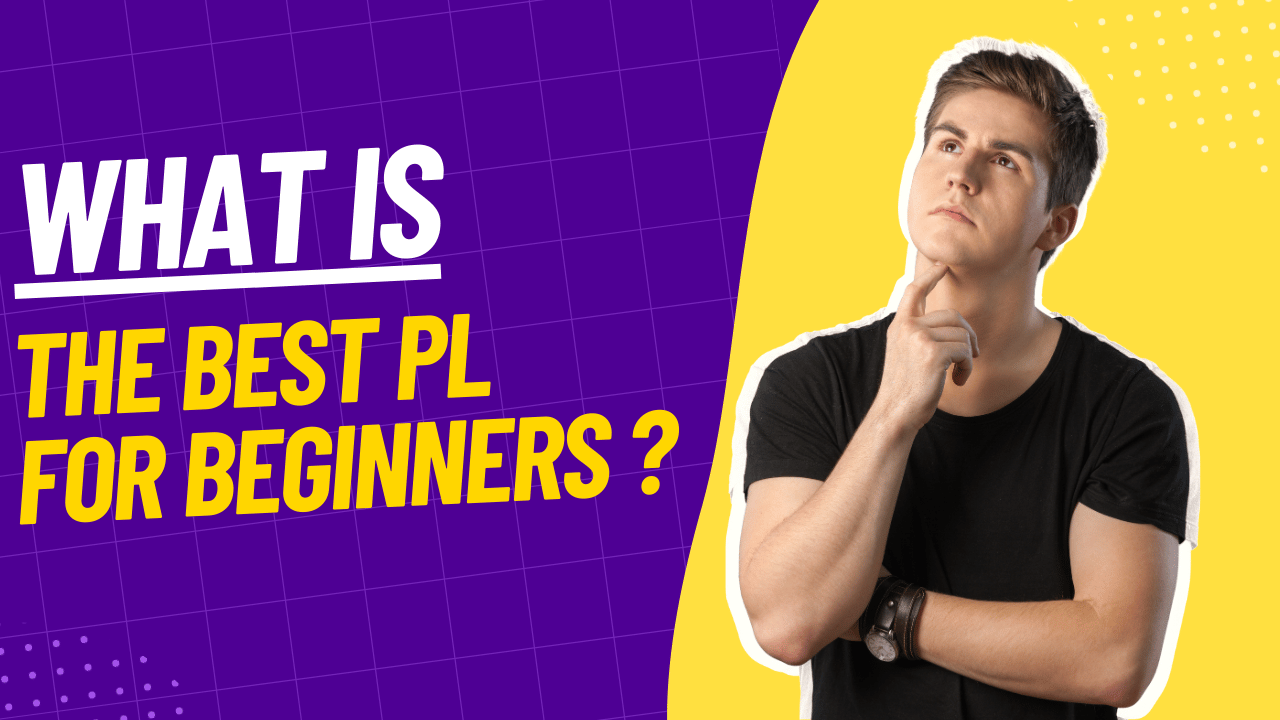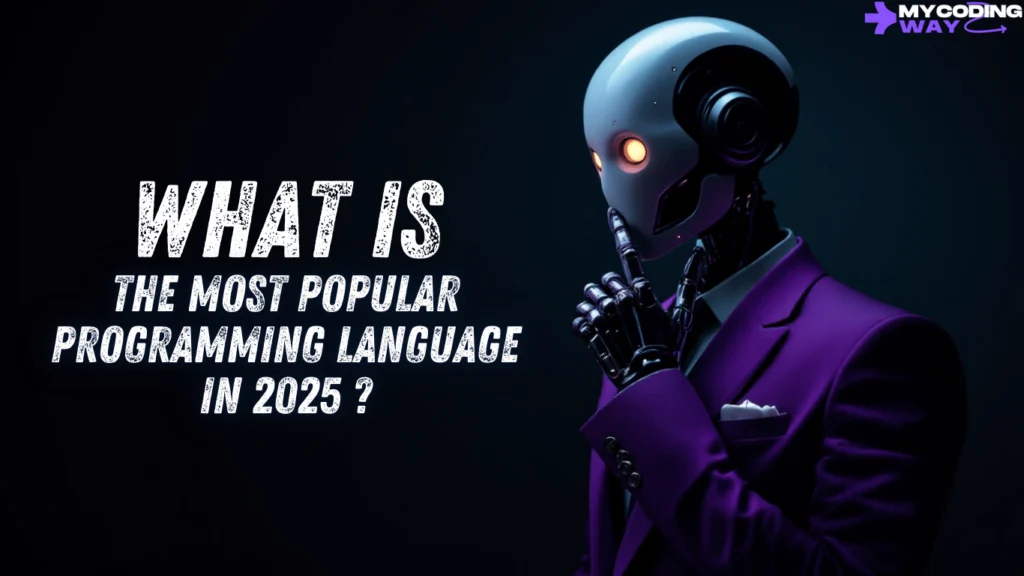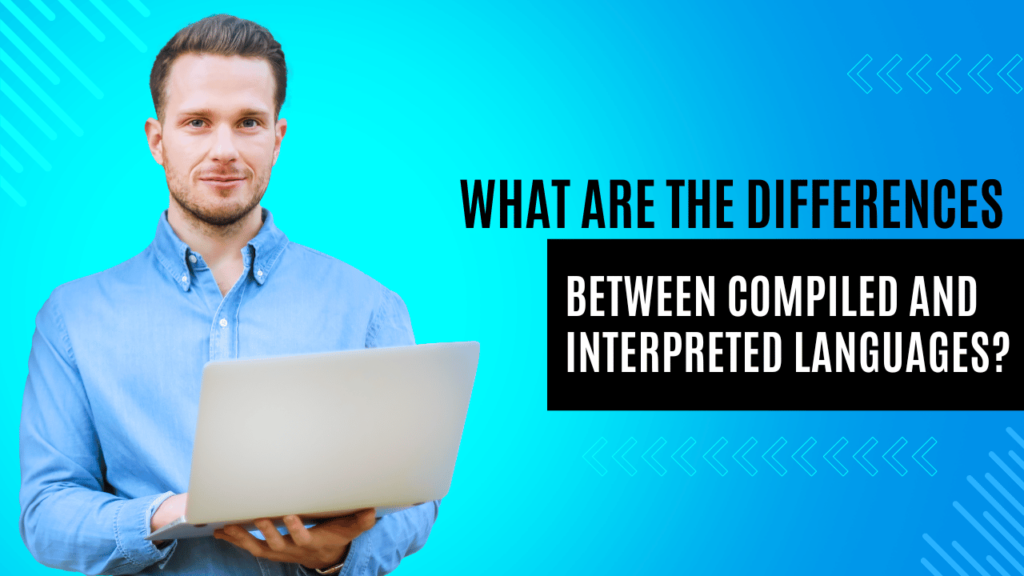What is the easiest programming language to learn for beginners ?

The easiest programming language can open the door to endless possibilities in the world of coding. Whether you want to build the next big app, automate tasks, analyze data, or simply explore your curiosity, choosing the right language is the first step. With so many options available, each offering unique advantages and strong communities, the decision might seem overwhelming. But don’t worry! Let’s dive into the best beginner-friendly programming languages in a fun and insightful way.
Table of Contents
The Importance of Choosing The Easiest Programming Language
Before diving into specific programming languages, it’s crucial to understand why choosing the right one matters. Programming languages are like different tools in a well-equipped toolbox—each designed to solve particular problems. Some languages function like a Swiss Army knife, versatile and capable of handling a variety of tasks, while others are highly specialized, tailored for more specific scenarios such as data analysis, web development, or system programming.
The language you choose as a beginner plays a significant role in shaping your learning experience. Selecting a language with a gentle learning curve can help you build foundational concepts without feeling overwhelmed. It should ideally strike a balance between simplicity and power, allowing you to see tangible results quickly. This sense of accomplishment can be a strong motivator to keep pushing forward.
Additionally, choosing a language with a broad ecosystem and strong community support can be a game-changer. It provides access to learning resources, libraries, and frameworks that can extend what you can achieve as a developer. A good language choice not only simplifies the learning process but also opens doors to various fields of programming, making your journey more flexible and rewarding.
Ultimately, the key is to pick a language that aligns with your goals while providing opportunities to experiment, create projects, and apply what you’ve learned in real-world scenarios. The right language empowers you to stay engaged, build confidence, and set a strong foundation for continued growth as a developer.
Python : The Friendly Snake in The World of Code
Python is often hailed as the go-to programming language for beginners, and for a good reason. Its syntax is clean, intuitive, and highly readable, making it an excellent first language for anyone starting their programming journey. Unlike many other languages, Python reads almost like plain English, allowing learners to concentrate on solving problems and understanding core programming concepts rather than getting bogged down by complex syntax rules. This simplicity and accessibility have made Python a popular choice in educational settings, from high schools to universities.
Beyond its beginner-friendly nature, Python is incredibly versatile and widely adopted across various industries. If you’re interested in web development, frameworks like Django and Flask provide robust tools to build everything from simple websites to large-scale applications. For those drawn to data science, machine learning, or artificial intelligence, Python’s extensive libraries—including Pandas, NumPy, TensorFlow, and Scikit-learn—offer powerful tools to analyze data, build predictive models, and create sophisticated AI solutions.
Python’s capabilities don’t stop there. It’s also used in automation scripts, financial technology, cybersecurity, and even game development with libraries such as Pygame. This programming language is vast ecosystem continues to grow, supported by a large and active community of developers who contribute tools, tutorials, and solutions to common problems. This ensures that help and learning resources are always readily available, making Python not only a great starting point but also a language that supports long-term growth in your coding journey.
JavaScript : The Language of The Web
JavaScript is another excellent choice for beginners, particularly for those interested in web development. Every time you interact with a webpage—whether it’s clicking a button, filling out a form, or watching content dynamically load—JavaScript is often working behind the scenes. As the language of the browser, it plays a crucial role in creating interactive, responsive, and dynamic websites. Mastering JavaScript unlocks opportunities in front-end development, where you build and design what users see and interact with, as well as back-end development, thanks to runtime environments like Node.js that handle server-side operations.
One of JavaScript’s greatest advantages is its accessibility. Being instantly executable in any modern web browser means there’s no need to install or configure a complex development environment to get started. With just a few clicks, you can open your browser’s developer tools and begin experimenting with code. This immediate feedback loop makes learning fast and engaging.
Beyond its ease of use, JavaScript boasts a vast ecosystem of frameworks and libraries, including React, Angular, and Vue.js, which simplify the process of building sophisticated web applications. Its vibrant and supportive community continuously develops tools, resources, and learning materials, making it easier for beginners to find help and guidance as they progress. By learning JavaScript programming language, you gain a solid foundation for building both simple projects and complex web solutions, making it a powerful and versatile language for any aspiring developer.
Ruby : The Language of Simplicity and Elegance
Ruby is another language frequently recommended to be the easiest programming language to learn for beginners, especially those drawn to web development. Known for its concise, elegant, and readable syntax, Ruby emphasizes simplicity and developer productivity. The language was thoughtfully crafted with the principle of “developer happiness” in mind, making it intuitive and enjoyable to work with. This focus on clarity and efficiency allows beginners to concentrate on problem-solving rather than getting lost in complex syntax rules.
One of the biggest attractions to Ruby is Ruby on Rails, a powerful and influential web application framework that significantly speeds up development. By handling many routine tasks behind the scenes, Rails allows developers to focus on creating features rather than dealing with tedious setup and configuration. Its convention-over-configuration philosophy makes it an excellent choice for building robust and scalable web applications quickly.
Although Ruby’s popularity has declined somewhat in recent years due to the rise of other languages and frameworks, it still boasts a dedicated and passionate community. This community contributes a wealth of resources, tools, and open-source projects, making it easier for newcomers to learn and grow. For those who value clean, readable code and want a fast path to building fully functional web applications, Ruby remains a solid and rewarding option.
Java : The Robust and Versatile Giant
Java has been a cornerstone of the programming world for decades and remains an excellent choice for beginners who want to master a programming language that is both powerful and versatile. Although its syntax may initially seem more complex than that of languages like Python or Ruby, learning Java provides a strong foundation in object-oriented programming (OOP) principles, such as encapsulation, inheritance, and polymorphism. These concepts are fundamental to many modern programming languages and will serve you well throughout your coding journey.
One of Java’s biggest strengths is its wide range of applications. It’s a go-to language for Android app development, powering countless mobile applications. Beyond mobile, Java plays a critical role in building large-scale enterprise backend systems, web applications, financial services software, and even embedded systems. Its ability to run on virtually any platform, thanks to the Java Virtual Machine (JVM), further underscores its versatility.
Java’s longevity and popularity have cultivated a vast, active community that produces countless tutorials, courses, forums, and documentation. This wealth of resources makes it easier for newcomers to find guidance and troubleshoot issues as they learn. For those interested in mobile development, enterprise solutions, or simply gaining expertise in a language that is highly sought after in the job market, Java is a powerful and rewarding choice that continues to stand the test of time.
Swift : The Language of Apple Lovers
For those captivated by the Apple ecosystem and eager to create apps for iOS and macOS, Swift is an excellent language to begin with. Developed by Apple, Swift is designed to be fast, safe, and easy to read, providing an ideal balance between simplicity for beginners and power for professional developers. Its modern features make it an attractive option for those looking to build cutting-edge applications on Apple’s platforms.
Swift boasts a clean, clear syntax that is similar in simplicity to Python, which makes it accessible for newcomers while remaining robust enough to handle complex development tasks. Additionally, Swift offers real-time feedback through tools like Xcode’s Playground, allowing you to experiment and see the results of your code instantly. This immediate feedback encourages hands-on learning and boosts your confidence as you progress.
Swift is particularly appealing if you’re a fan of Apple’s products and want to dive directly into developing beautiful, high-performance apps for iPhone, iPad, Mac, and more. Whether you’re interested in building the next big app or simply want to bring your ideas to life within the Apple ecosystem, Swift provides a smooth and powerful introduction to app development, making it a fantastic choice for both beginners and experienced developers alike.
C# : The Bridge Between Beginners and Game Development
C# (pronounced “C-sharp”) is a versatile programming language developed by Microsoft, known for its wide application in developing Windows applications and games, especially through the Unity game engine. For those who dream of getting into game development, C# is an excellent starting point. The language shares a similar syntax with Java and C++, making it familiar to those who have experience with other C-based languages, but it is designed to be more beginner-friendly and approachable.
One of the key reasons for C#’s popularity in game development is its integration with Unity, one of the most widely-used platforms for creating 2D and 3D games. Since Unity heavily relies on C#, it is the go-to language for aspiring game developers who want to create immersive experiences for a variety of platforms. Beyond game development, C# is also a powerful language for building desktop and web applications, offering additional versatility for developers interested in expanding their skills beyond just gaming. Whether you’re creating games or working on business applications, C# provides a strong foundation that scales well across different types of development projects.
Factors to Consider When Choosing a Language
With so many programming languages available, choosing the one that’s right for you can feel overwhelming. To make an informed decision, consider the following key factors:
- Your Goals: Think about what you want to achieve with programming. Are you interested in building websites, analyzing data, creating mobile apps, developing video games, or exploring another area of technology? Different languages are suited to different fields, so identifying your goals will help you select a language that aligns with your aspirations and projects.
- Ease of Learning: The learning curve of a language can vary greatly, with some languages being easier to pick up than others. If you’re looking to get started quickly, languages like Python and JavaScript are known for their simplicity and beginner-friendly syntax, enabling you to dive into coding with fewer obstacles. On the other hand, languages like C++ or Java may require more effort upfront but provide a deeper understanding of programming fundamentals.
- Community and Resources: A language with an active and large community offers a wealth of resources that can support your learning journey. From tutorials and documentation to online forums and support groups, a strong community makes it easier to find answers to your questions and stay motivated. Popular languages like Python, JavaScript, and Java have robust communities, ensuring that help is always available when you need it.
- Career Prospects: If career advancement is a priority, consider how in-demand certain programming languages are in the job market. Languages like JavaScript, Python, and Java are consistently sought after by employers across industries, offering ample job opportunities. Choosing a language with strong career prospects can increase your chances of landing a position in your desired field and contribute to long-term professional growth.
By evaluating these factors, you can choose a language that not only aligns with your personal interests but also sets you up for success in your learning journey and career path.
Conclusion : The Best Language is The One you stick with
Ultimately, the easiest programming language to learn first for beginners depends on your interests, goals, and what you find enjoyable. Python often wins out for its readability and versatility, while JavaScript is indispensable for web developers. Ruby offers elegance, Java brings robustness, Swift appeals to Apple enthusiasts, and C# opens up the world of game development. Remember, the key to mastering any language is consistency and practice. Start with a language that excites you and aligns with your goals, and don’t be afraid to experiment. The best programming language to learn is not just the one that’s easiest or most popular—it’s the one that keeps you motivated to learn and grow. Happy coding!





